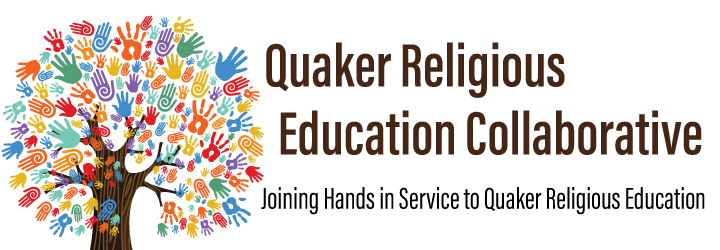Welcome and Introductions
Centering Silence
Quaker Campus Ministry: Offering guidance and community in the manner of Friends
College is a time of seeking: to explore truth, to discern values and to connect with others. Students may also feel overwhelmed and isolate from the life they have known. Quaker campus ministry can speak to these conditions, offering beloved community and Spirit-led practice. Join this conversation to explore promising approaches to Quaker campus ministry.
Facilitators: Marsha Holliday, Langley Hill, BYM and Beth Collea, Dover MM, NEYM
Conversation Starters:
Maurine Pyle resides in Southern Illinois, just south of St. Louis MO. She is the author of “NEW CHILDREN OF THE LIGHT: Quaker youth speak their Truth to the world (2016)” which was derived from interviews with 16 young adult Quakers. While attending graduate school at Southern Illinois University in Carbondale, she served as a campus minister at the Interfaith Center where she encountered many seekers who were “spiritual but not religious”.
- Maureen interviewed young Friends about metaphors of light and darkness, and published a book, New Children of the Light (see Resources below). The phrase ‘Young Adult Friends’ divides us, potentially discounting the value brought forth by young adults. We’re all Friends, regardless of age. The Religious Society of Friends was founded largely by young adults. Students may have deep, new insights and vital leadings, that we should take seriously. As Friends, we should turn to young adults, embrace their leadings, help them discern the way forward, respond and join with them. This is their world more than ours as older adults.
Greg Woods is serving as Youth Ministries Coordinator at Friends Meeting at Cambridge in New England YM. He has carried a concern for Quaker Campus Ministry for many years and in the past has organized service trips at William Penn House in Washington DC and served in the Quaker Leadership Center at Guilford College.
Quakerism has tools students can use. College is a good time to think outside what you were always taught. Quaker colleges are wonderful, but we should reach beyond them to other colleges and universities. Greg wrote an article for Friends Journal, Organizing Young Adult Friends Online (see Resources below). He hopes to get a grant from Friends Meeting of Cambridge to pilot a group.
Gene Throwe (9/19 only) is a Quaker chaplain for American University in Washington DC. He was led to develop an outreach program between local college students and the Quaker community after attending a retreat on engaging young adults in Quakerism. He is active with Friends Meeting of Washington in Dupont Circle where he has served for the last 2.5 years as the co-Clerk of his meeting and is active with the Young Adult Friends.
Queries
What does Quaker faith and practice offer to college students and other post-secondary learners?
- Deep listening: Learning how to listen is valuable for college students. Quaker practice teaches deep listening.
- Clearness process: The clearness process is valuable to everyone, regardless of their faith. Students face important decisions and need discernment.
- History and current involvement in social action: Living the testimonies. Many people come to Quaker community by joining with us on social action, seeing our commitment to truth, peace, equality, simplicity.
What is unique and valuable in Quaker campus ministry?
- Expectant waiting: It starts with stopping. Students lead busy lives and may benefit from opportunities to stop, wait and listen.
- Affirming the Divine worth of everyone: Students who were raised in other faiths may seek spiritual community where their worth is valued, and their identity affirmed; for instance: LGBTQI
How can monthly meetings and colleges collaborate to offer Quaker worship, study and community to students?
- It is far better to work with students, though it may take longer. If even one or two students are committed to the effort, it is more likely to take life.
- Are there students, faculty or campus staff among attenders at the monthly meeting who are led to help with campus outreach?
- Does the campus have an office of student life?
- What clubs or groups exist that may be open to learning about us and/or partnering with us?
- Student clubs with a religious focus
- Groups of seekers.
- Local campus ministry groups – gatherings of campus ministers.
- Center for social justice.
- Departments of religion
- Offer to facilitate experience of Quaker faith and practice during a meeting of the group.
- Brief stand-alones on Quaker practices
- Pamphlet on the testimonies with examples from Quaker history and current practice.
- In Kenya, there were Quaker navigators who spoke with students in high schools. We should do the same with colleges and universities to help Quaker students explore and appreciate Friends faith and practice, to find its relevance for their lives rather than fading away to other faiths that are doing more outreach on campus.
- Listen to young adults. Ask, “How would you like me to respond to this?”
- Self-assess Meeting for openness to newcomers. Are we so insular that newcomers may find it hard to fit in? Do the images around our meeting portray young people and current Friends or only old people or early Friends?
- Newcomer card listing offerings of Meeting:
- Coffee with a Quaker (deep getting to know one another, opportunity to say what’s on your mind)
- Clearness committee
- Peace and social action committee
What ministry is emerging to nurture community among young Friends and other young adult seekers?
- Does outreach arise from a committee of the Monthly Meeting? It should start with deep prayer within the monthly meeting. When communicating with students, Quaker should be presented as a way to connect with God, to fulfill the needs of students, not our need as a community to grow the Meeting.
- We should listen for the voice of God in young people. We should be open to new ideas and practices rather than making seekers conform to the norms of a closed group.
- We should listen to everyone, young and old. Older people have wisdom and patience and young people may need guidance. In our tradition, we wait on the Spirit to discern a true leading. We can’t be everything to everyone, but we can help young people discern.
- We need to learn to tell our story, to hone an elevator speech about Quakers, and about our meeting.
- Living room stories: meet in a Friend’s home to tell our spiritual stories. For instance, “This is how I came to God.” Or pick a theme about faith or beliefs.
- Online gatherings of young adult Friends (see Greg’s article below)
- Seeking and questioning is a burning drive for young people. We need to be able to offer deep listening and response.
Gratitude
Closing Worship
Resources:
- New Children of the Light: Quaker youth speak their Truth to the world (2016), by Maurine Pyle. http://quakers4re.org/find-resources/new-children-light?return_path=/find-resources%3Fkeys%3D%7C~%7Cfield_age_group_tid_selective%5B0%5D%3D34%7C~%7Cpage%3D1
- Spirit Rising: Young Quaker Voices, (2010) by Angelina Conti, Cara Curtis, Wess Daniels, John Lomuria, Emma Condori, Harriet Hart, Et Al www.fgcquaker.org/resources/spirit-rising-young-quaker-voices
- Organizing Young Adult Friends Online, Greg Woods: https://www.friendsjournal.org/quaker-yafs/
- QuakerSpeak: Videos on Quakerism, produced by John Watts for Friends Journal: https://www.youtube.com/user/Quakerspeak.
- Guilford College Friends Center: https://www.guilford.edu/who-we-are/friends-center
9/17 1:00 PM Eastern US time
|
Name |
Meeting-Organization |
|
Beth Collea |
Dover NH MM, NEYM, QREC Steering Circle |
|
Sita Diehl |
Madison WI MM, NYM, QREC Steering Circle |
|
Maurine Pyle |
Lake Forest IL, ILYM |
|
Greg Woods |
Friends Meeting of Cambridge, NEYM |
|
Dancan Sabwa |
Kitale MM, North Kenya YM |
|
Anna Dulin |
Orono MM, NEYM |
|
Anne Collins |
Stillwater OK, SCYM |
|
Carol Anne Ferlauto |
Earlham College |
9/19/19 8:00 PM Eastern US time
|
Name |
Meeting-Organization |
|
Marsha Holliday |
Facilitator, Langley Hill MM, BYM, QREC Steering Circle |
|
Sita Diehl |
Madison WI MM, NYM, QREC Steering Circle |
|
Gene Throwe |
American University, Langley Hill, BYM |
|
Maurine Pyle |
Lake Forest IL, ILYM |
|
Kaia Jackson |
Richmond IN MM, OVYM |
|
Kody Hersh |
Orlando MM, SEYM, QREC Steering Circle |
|
Beth Collea |
Dover NH MM, NEYM, QREC Steering Circle |
|
Windy Cooler |
Sandy Spring MM, BYM |



